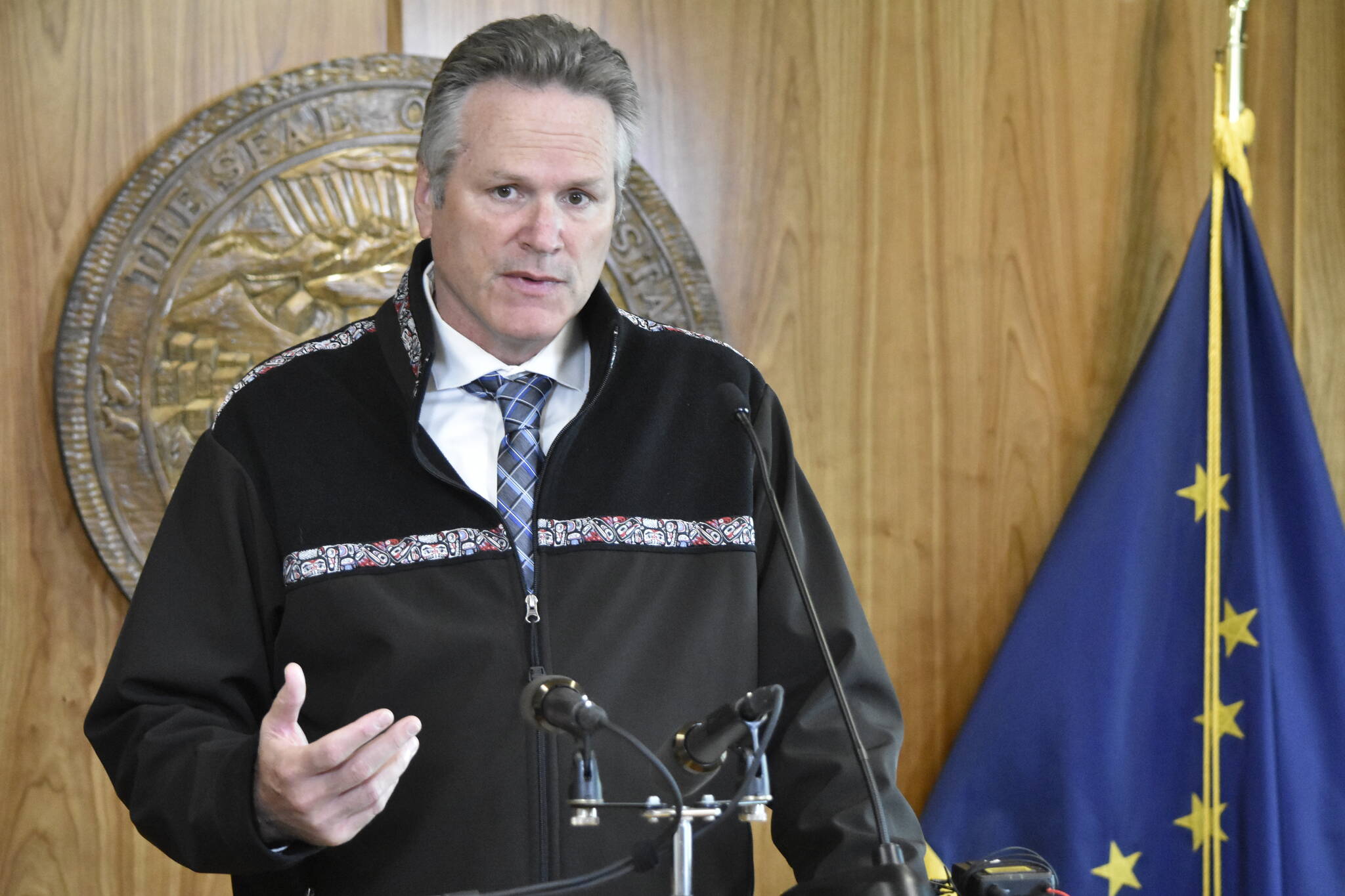As every responsible citizen knows, the summer COVID wave is a result of two factors. One is the more contagious delta variant. “Now, thanks to the efforts of President Trump and Operation Warp Speed, there is a safe, free, and widely available tool to put COVID-19 the rearview mirror. That tool is the vaccine.”
That’s what Gov. Mike Dunleavy said in a news release early last month. But he wouldn’t have had to make that statement if he was an effective leader.
And during a news conference last week, he once again proved he’s not.
First of all, the “now” lead-in makes it sound as if it was breaking news. But it was back in March when Dunleavy proudly announced the vaccines were available to all Alaskans 16 and older. Which brings me to the second factor of the summer wave — the significant segment of the population refusing to get vaccinated.
According to the state’s dashboard, only 55.1% of residents over the age of 12 have been fully vaccinated. Another 5.8% have received at least one dose.
Those numbers imply that Dunleavy has been unable to influence the remaining 40%. But it’s worse than that. By the middle of May, 50% of Alaskans were fully vaccinated. Most didn’t need Dunleavy’s coaxing because they trusted the nation’s medical institutions. Since then, he’s been unable to convince four out of five of the rest to get vaccinated.
In the news conference, Dunleavy boasted that “vaccination rates have increased dramatically.” That too is misleading. It jumped more than 40% at the end of the month compared to the last two weeks in July. But the number of people getting vaccinated in early May was twice what is now. It was almost six times higher in the middle of April.
Dunleavy’s laissez-fairish strategy of advising people to “have conversations” about the vaccine with their doctors and friends clearly isn’t working.
“This isn’t North Korea. You don’t dictate to people how they live their lives,” Dunleavy replied when reporters challenged him on that. In an obvious reference to Nazi Germany, he later added, “This isn’t someplace in Europe in 1939.”
That kind of defensive reaction to legitimate criticism isn’t only immature. It’s counterproductive. He effectively endorsed the irrational, politically motivated arguments against intelligent COVID policies spouted by widely followed Republicans in Congress such as Rep. Marjorie Taylor Greene of Georgia.
Stupid tweets from Greene and others like her probably fed the anger of the Juneauite who told the CBJ assembly in July that if they passed the emergency COVID ordinance, they were “nothing but a group of tyrants” like those in “communist China or Nazi Germany.”
Granted, not every vaccine hesitant individual believes that crazy talk. But a lot still don’t trust the vaccines or the government. Others don’t believe COVID-19 poses a serious threat.
Many who don’t have primary physicians they regularly see and trust may be influenced by snake oil salesman like Joseph Mercola. Back in 2005, the osteopathic physician reportedly made comparisons between school vaccine requirements and the Holocaust. More recently, he helped promote the falsehood that the mRNA-based vaccines can permanently alter a person’s DNA.
According to the New York Times, Mercola published more than 600 articles containing disinformation about the vaccines on Facebook, where he has 1.7 million followers. He’s so confident in his work that two weeks after the Times referred to him as one of the top 12 spreaders of COVID misinformation, he started deleting everything he wrote for his website 48 hours after posting it.
Because Dunleavy is promoting the vaccine, we know he doesn’t believe people like Greene and Mercola. Nobody expects him to force people to get vaccinated. But other than calling out Sen. Lora Reinbold, R-Eagle River, last winter, he’s done little or nothing to make sure Alaskans aren’t being misled.
Given that left-leaning politicians and pundits have zero influence on individuals who are apprehensive about the vaccines, Dunleavy should be forcefully identifying the hucksters and quacks who are interfering with his goals. That might encourage more Alaskans to actually consult with a real doctor and then choose to get vaccinated.
Instead, he’s following the instincts of the worst representatives of his party. And followers are anything but leaders.
• Rich Moniak is a Juneau resident and retired civil engineer with more than 25 years of experience working in the public sector. Columns, My Turns and Letters to the Editor represent the view of the author, not the view of the Juneau Empire. Have something to say? Here’s how to submit a My Turn or letter.

